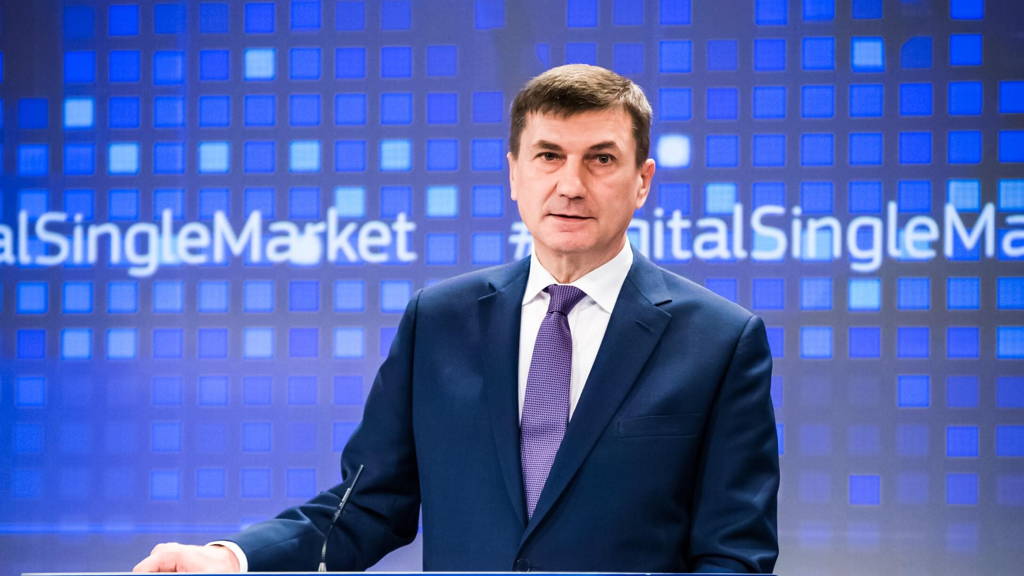IoT – the Internet of Things - will play a very important an disruptive role in the European Union in the coming years. IoT and wearable technology will transform the way consumers go about their business, the way companies do business and the way healthcare takes care of people.
That is one of the messages Andrus Ansip wanted to get across during his speech at the Digital Assembly 2016 in Bratislava – the other one being the importance of breaking down barriers in order to ensure free flow of data across the European continent.
Vice-President Ansip, as European Commissioner in charge of the Digital Single Market, pointed out that IoT technology like smart home devices and platforms are not a fantasy of the future. The 'smart home' is fast becoming a reality.This technology already exists. But more importantly than having a sleep-tracking wearable device that has already switched on the lights: smart digital gadgets help people to look after their health. “When they notice anomalies, these devices inform the doctor. They remind people to take their medicine. They facilitate - and even provide - e-nursing and e-health services.”
Cisco estimates that 50 billion devices and objects will be connected to the internet by 2020 – vastly more than today. This kind of growth creates unprecedented opportunities for industries, businesses and people. Smartphones are a good example. Their ownership is booming. By 2020, 70 percent of people will have one.
“Increasingly, the main function of smartphones is not to make calls. They are also used as portable video screens, digital wallets, authentication tools or health monitoring devices. With these new demands on network infrastructure, it will also make high-speed networked connections more relevant and valuable than ever before.”
Healthcare is among the sectors where wearables are increasingly integrated into the day-to-day workflow. “Wearables in the workforce are becoming more prominent, as they give workers immediate, direct access to important information, such as profiling health care records on a smart glass display,” says Stephanie Lawrence, Research Analyst at ABI Research. “This hands-free approach saves time, allowing staff to become more efficient and, ultimately, saving companies money.”
That is one of the messages Andrus Ansip wanted to get across during his speech at the Digital Assembly 2016 in Bratislava – the other one being the importance of breaking down barriers in order to ensure free flow of data across the European continent.
Vice-President Ansip, as European Commissioner in charge of the Digital Single Market, pointed out that IoT technology like smart home devices and platforms are not a fantasy of the future. The 'smart home' is fast becoming a reality.This technology already exists. But more importantly than having a sleep-tracking wearable device that has already switched on the lights: smart digital gadgets help people to look after their health. “When they notice anomalies, these devices inform the doctor. They remind people to take their medicine. They facilitate - and even provide - e-nursing and e-health services.”
IoT raises quality of living
It may have been easy to dismiss the Internet of Things – the IoT – just as something that reminds people to buy more milk. But as it has developed and expanded, it is transforming every industry - locally and globally, Ansip believes. “The IoT will raise the quality of living. Ultimately, it has the capacity to prolong and save lives.”Cisco estimates that 50 billion devices and objects will be connected to the internet by 2020 – vastly more than today. This kind of growth creates unprecedented opportunities for industries, businesses and people. Smartphones are a good example. Their ownership is booming. By 2020, 70 percent of people will have one.
“Increasingly, the main function of smartphones is not to make calls. They are also used as portable video screens, digital wallets, authentication tools or health monitoring devices. With these new demands on network infrastructure, it will also make high-speed networked connections more relevant and valuable than ever before.”
Smart glasses in healthcare
Talking about the growing importance of wearables in healthcare, market research firm ABI just released a report stating that in 2021 over 154 million wearable devices will be shipped for business purposes. Already wearable devices like smart watches and smart glasses increase efficiency and improve services because employees and professionals can use both hands.Healthcare is among the sectors where wearables are increasingly integrated into the day-to-day workflow. “Wearables in the workforce are becoming more prominent, as they give workers immediate, direct access to important information, such as profiling health care records on a smart glass display,” says Stephanie Lawrence, Research Analyst at ABI Research. “This hands-free approach saves time, allowing staff to become more efficient and, ultimately, saving companies money.”






